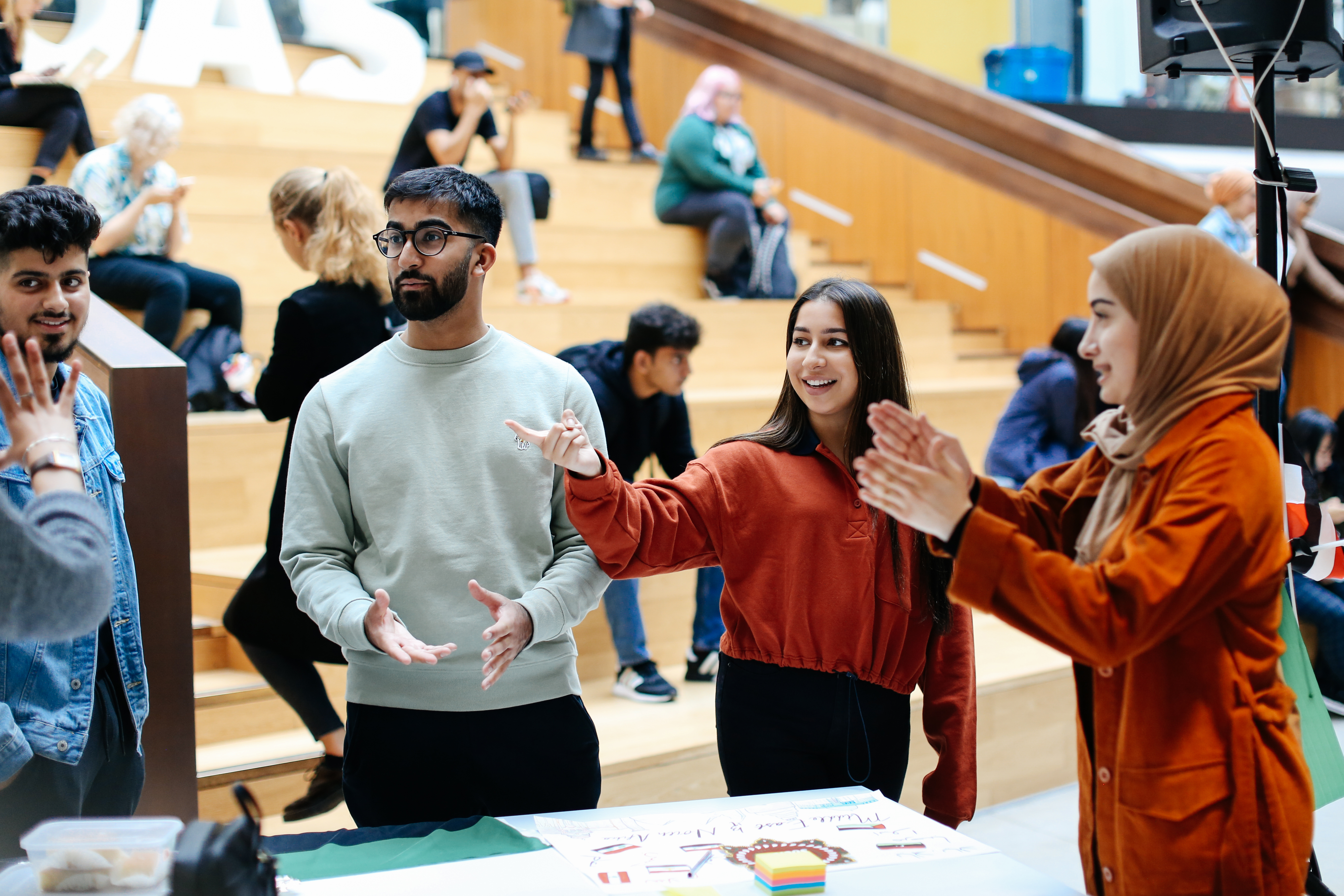Economics at SOAS University of London is grounded in a global perspective. Here, understanding historical legacies, making sense of today’s economic and development challenges and planning for the future take you on an intellectual journey around the world. The focus is on the economies of the Global South, especially Africa, Asia and the Middle East, as well as Europe and Latin America. The greatest challenges of our time are interrogated through critical lenses held up by some of the most prominent thinkers and practitioners in this field.
Whether they’re from Tokyo or Turkey, previously a consultant for UN Women or advisor to the World Bank and OECD, faculty members here bring decades of experience from various fields and regions. The international faculty aren’t the only ones to learn, grow and get interesting perspectives from – students from over 135 countries enable even more cognitive friction that enhance deliberation.
Located in London, the #1 QS Best Student Cities 2024, SOAS is one of the most international universities in the UK. In economics, SOAS is ranked #27 by QS World University Rankings 2023, drawing more students to join the programmes offered by the School. This sets the stage for working together with a multinational and multicultural community — a great base for anyone seeking advanced knowledge, skills and experience in a field whose contributions inform everything from public policy to household decisions.
SOAS Economics designs its programmes around two of the department’s fundamental intellectual traditions: a rigorous pluralist theoretical approach and a focus on real-world development issues using modern economic analytical tools. Gaining an understanding of multiple approaches and mastering theoretical models and mathematical, statistical, econometric and computing skills will give you the necessary knowledge to work on relevant, real-world issues.
“At SOAS Economics, you will be challenged to think differently, to develop practical skills necessary for an economist to navigate today’s complex world, and to deploy economic theory and evidence to understand the big questions of our times,” says Dr. Satoshi Miyamura, Head of the Department of Economics. “There is no better time to become a SOAS economist.”

SOAS Economics postgraduate programmes challenge students to understand the big questions of our times. Source: SOAS University of London
Programmes that match your aptitude and aspirations
MSc programmes in Economics, Economic Policy, and Development Economics are designed to accommodate your background and capabilities.
The MSc Economics covers both mainstream and heterodox approaches in economics, while the MSc Economic Policy offers those without an economics background the fundamental principles of economic policy grounded in the evolution of economic theory and policy practice. Meanwhile, the MSc in Development Economics aims at those interested in understanding the complexities of the global economy, the economic challenges and opportunities confronting countries in the Global South and addressing significant development challenges.
Within the programmes, there are lines of specialisations, such as Economics and Institutions, Economics of Environment, and International Finance. There are also opportunities to focus on economic issues in relation to countries and regions in Africa, the Asia Pacific region, China and the Middle East, amongst others.
Furthermore, differentiated modules like Global Economic Policy Analysis, Research Methods, and Evaluation Methods for Economic Policy aid in providing an all-rounded understanding of the field.
In Global Economic Policy Analysis, you examine core policy and reform debates on current global economic governance. You’ll explore international monetary and financial integration, production, trade and competitiveness, social policy and the role of labour in the global economy.
The Research Methods module introduces students to what it takes to make meaningful new contributions to a chosen research field. You’ll test the strengths and weaknesses of different methods for various research objectives, with the aim of acquiring the basic tools to undertake independent research and to evaluate the methods through which the results of development research are generated.

Research at SOAS Economics drives scholarship and policy in the UK and internationally, partnering with national and international organisations to create a better world. Source: SOAS University of London
Evaluation Methods for Economic Policy is designed specifically to address the needs for economic policy analysis. It covers topics from experimental and quasi-experimental approaches to mixed methods techniques.
In all MSc programmes in Economics, students write their dissertations supervised by expert academic researchers in the department. These programmes also offer opportunities for students to conduct research with and co-supervised by experts from leading organisations. Some examples include the World Bank, the International Trade Centre, the United Nations Industrial Development Organisation, the United Nations Conference on Trade and Development, and the International Labour Organisation. In a new scheme, leading experts from the World Bank and several United Nations agencies provide joint supervision to postgraduate Economics students. This allows students to link theory with practice tackle real-world problems through a multifaceted lens. “Collaborating with international experts offers students invaluable interdisciplinary skills, critical problem-solving perspectives, and access to cutting-edge economic research and innovative methodologies,” says Head of the Department of Economics Dr. Satoshi Miyamura.
The MSc programmes are offered as part of a dual master’s degree with Johns Hopkins University School of Advanced International Studies (SAIS), giving you the opportunity to live and learn at SOAS and SAIS for a year each and gain a master’s award from both institutions. The MSc programmes in Economic Policy and Development Economics also offer work placement year options, allowing you to gain professional skills and a full year’s practical work experience in the UK. SOAS Economics has experts across various fields such as finance, environment and sustainability, institutions and governance, labour markets, social protection, poverty and inequality amongst others. Throughout your time at SOAS, you’ll have a wealth of interactions with these experts, preparing you for a career as an economist in government, international organisations, consulting, and academic research.
Follow SOAS University of London on Facebook, Instagram, LinkedIn, YouTube and Weibo
Follow SOAS Economics on X










